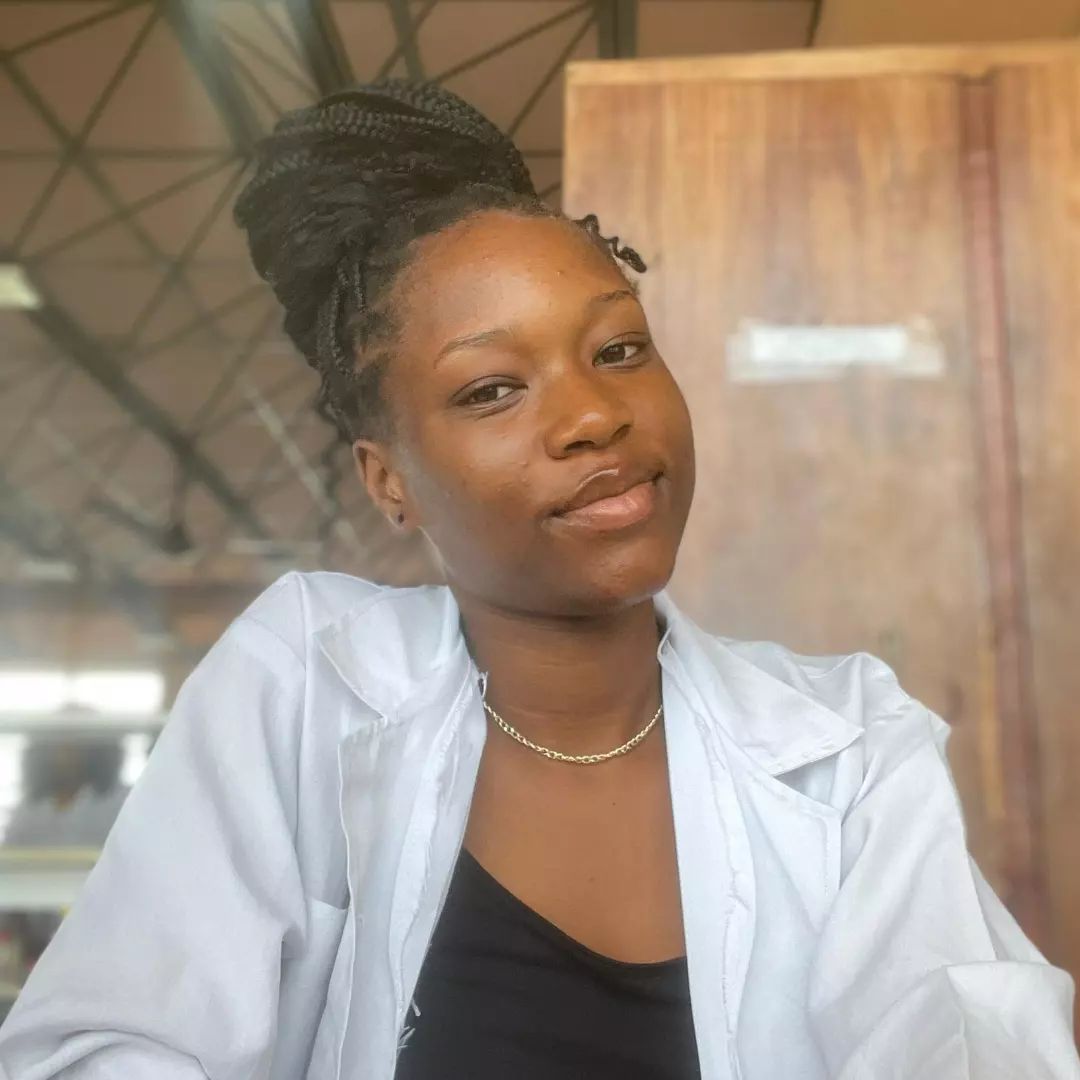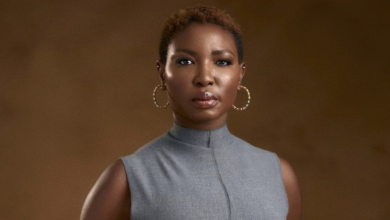#JusticeForChristiana: Reminiscing on an artistic life and a nation’s conscience engulfed in misogynistic mores

|
Getting your Trinity Audio player ready...
|
Christiana Idowu turned 21 on June 28. She was a 300-level botany student at the Federal University of Agriculture, Abeokuta (FUNAAB), undergoing her industrial training (IT) – a prerequisite to graduating from a technical department in Nigerian universities. She was a model and hoped to become bigger and established: a dream you could tell she nurtured within seconds of meeting her.
She stylistically went by Keren, and her online presence was dedicated to beauty and fashion. Her beauty was showcased in posts proudly professing her faith, blithe vlogs of her coursemates, and cruise memes lamenting her student life. Christiana was a beautiful young woman and, from all indications, took immense pleasure and esteem in it. She loved to dress, take cute, sun-kissed, and adorably captioned snaps with her friends, and make video reels of her daily style, accompanied by pop songs. She also loved turnips. She was a girly girl in every appearance – uniquely quirky so. Epitomising your classic, everyday Gen Z persona. Your girl-next-door best friend. Your sister. Yourself, in one or more ways.
Christiana Idowu could be any of us, and the apparent documentation and key progression of her life glimpsed online paints a linear picture of liberation–she’s getting an education and working towards building a career for herself. An individual, making choices that reflect her agency. To the average person, this is what women’s rights look like: when women are not visibly, forcibly taken captive and physically subjected to actions against their will, but to any critical feminist thinker, to any keen social observer, there exists an immaterial, unseen structure of mores and beliefs that oil the social world, even as we actively participate in it.
At any other time, as women, some of us might not see ourselves (as) being “oppressed,” either as a result of privileged experiences or knowledge from a feminist-inspired lens or an all too often (hostile) anti-feminist lens, in rejection of a “victim mentality,” erroneously ascribed to feminist analysis of oppressive, social structures. The truth of the matter, rather, is that being a victim sometimes has little to do with personal beliefs.
Chances are that each of the 85 known and documented victims of femicide in Nigeria this year, if engaged in their opinions on gender equality, would give responses marred by blindspots, yet out of the left field, while going about their day, perhaps taking charge of their lives, they met violent deaths at the hands of a man. They became another statistical figure for sex-based violence. The “oppression” that was not visible in their lives suddenly penetrated the “sanctity” of their existence, not in a way to give them a wake-up call, at least, but to permanently halt their breaths.
These femicide cases owe their occurrence to the prevalence and normalisation of misogyny in Nigerian society. It is as alive and malignant, from the real world to social media, sparing no woman.
Christiana Idowu was its victim, as were Uwavera Omozuwa, Barakat Bello, Augusta Osedion, and Iniubong Umoren.
For Christiana, her ordeal, first brought to the limelight here and picked off from there, reveals ironic strains in people’s social conscience across the country. Her IT program was being held at the University of Lagos (UNILAG), and on one of her scheduled weekend visits to the school, she sought shelter with a childhood friend—a brother from church, Ayomide Adeleye, a 200-level student of philosophy at Olabisi Onabanjo University, Ogun State—when it began raining.
Adeleye tried to coerce her into having sex with him, and when she refused, he killed her. He then went on to dubiously stage a hostage situation with her lifeless body, demanding ransom in millions from her already heartbroken and hopeful parents – at his contact.
Without intent at trivialising Christiana’s fate and in full cognisance of the horrific circumstances around her demise, it is obvious and not morally unexpected that her death, a cruel and primitive one, sent a shock wave down the spine of every humane person in the country. The usual bouts of whataboutism and victim-blaming, replete in such other cases of femicide in the country, were little to nonexistent. There was no angle from which holes could be poked in the life she led and in the last few decisions she made leading up to her unfortunate end. She was a “perfect” victim by every metric of cultural sensibility, and anyone who heard of her story, from the marketplaces to radio stations, burned with righteous anger and clamour for justice.
It could be argued that her relatability made her story much more affective: she grew up being religious in close-knit streets and went on to make lifelong friends, acquaintances, and business partners from such communities. What are the chances that someone whom we knew intimately, not just as a church member, but a childhood friend, even until adulthood, would go on to murder us in cold blood?
When we think of killers and ‘evil’ people, we imagine them as some detached entities, wreaking havoc in parallel lifetimes beyond the scope of our reality. Ayomide was also reported to have been enquiring about Christiana’s whereabouts from their group of friends after she had been declared missing. He showed faux care and concern for his deceased victim, knowing fully well he was responsible for her lot, with two more deaths, allegedly, under his belt.
So, it is understandable the reactions and sympathetic commentaries that have trailed Christiana’s story for these reasons, yet there is a veneer of something comical, hypocritical, and downright willfully ignorant beneath the surface of these responses. It is, in fact, that the circumstances that necessitated the existence of such evil that befell Christiana were created by a society that doesn’t value nor protect its women. From beliefs to practices to sayings and trends, misogyny is given breath. From social media posts to real-life utterances that aim to characterise women as people ‘less-than-standard,’ either in a bid to promote a toxic kind of masculinity or simply for ‘bants’, evil men like Ayomide Adeleye (and Goodluck Bisong) thrive.
That they are evil by nature, with a propensity for violence or crime, is but one factor of the matter. They may be men who are psychologically predisposed to carrying out heinous acts, buffered by biological advantage, and men as well can fall victim to them, but the fact remains that women are overwhelmingly the victims of such men. Hence, it is a phenomenon categorised as femicide and, as is expected of a functional society, sanctions, either through formal laws or cultural norms, ought to be put in place and stringently enforced. Such deterrence is observable in other aspects of society, especially as it relates to morals, and they are meant to command compliance: the shaming of single mothers, unmarried or sexually active women, and people of the LGB+ community, for example. Sharia laws stipulating dismemberment for various crimes committed by adherents of the Islamic religion are also another example.
If it were so that Ayomide Adeleye had killed other women before, and to the knowledge of his parents, an adroit justice system and commune with the interest of women at heart would have nipped his evil in the bud before another woman fell victim. Such is the case of Goodluck Bisong, whom neighbours reported to have started from petty theft and sexual harassment.
It is evident, then – that the Nigerian society we live in majorly fails to pathologise and punish male degeneracy and violence effectively, which is directly correlated to the importance it accords its women. So, it is contemptible to observe the criticism, encomium, and contrite that has been expressed in the aftermath of Christiana’s death, as if it were a case isolated from a sexist culture. As if some women who have been victims of femicide are less dignified than others, and as if any woman – mother, daughter, or sister – could not fall victim to it, seeing the way misogynistic rhetoric continues to be viciously peddled by men and women alike, young or old.






